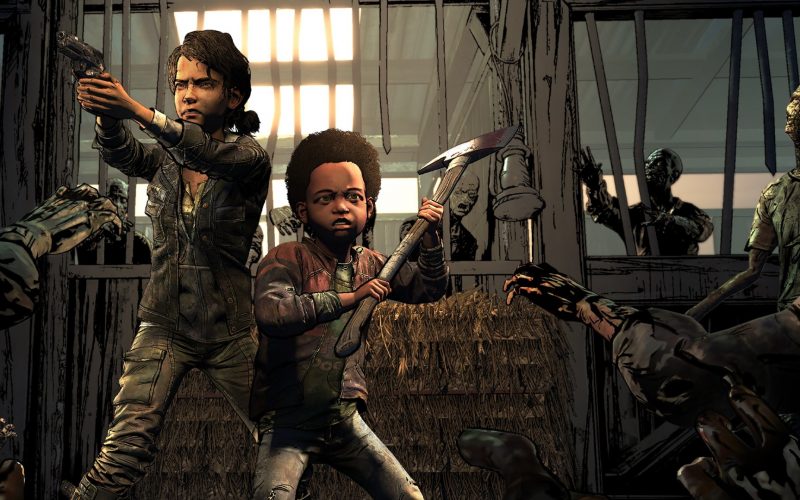Telltale’s The Walking Dead: The Definitive Edition (2019).
Skybound Entertainment’s release of the entire Telltale Games’ Walking Dead saga is bittersweet. This series, as a whole, epitomises the legacy of a now dead studio. It’s an uneven collection that features the late developer at its peak, its low point, everything in between and finally, it shows us what could have been.
It’s no secret that this series, and for many Telltale’s entire body of work, never soared any higher than with its seminal post apocalyptic first season. Released throughout 2012, Telltale’s The Walking Dead came out after the same company made licensed games set in the Back to the Future and Jurassic Park worlds (clear indicators of where Telltale was headed following a slew of other games released prior). Both of these games are flawed and feature an old-fashioned style of point-and-click adventuring with just a hint of what would become the studio’s forte. These two games, in hindsight, feel like trials for a formula that would be perfected with a sombre, stirring story set within Robert Kirkman’s groundbreaking comic book series.
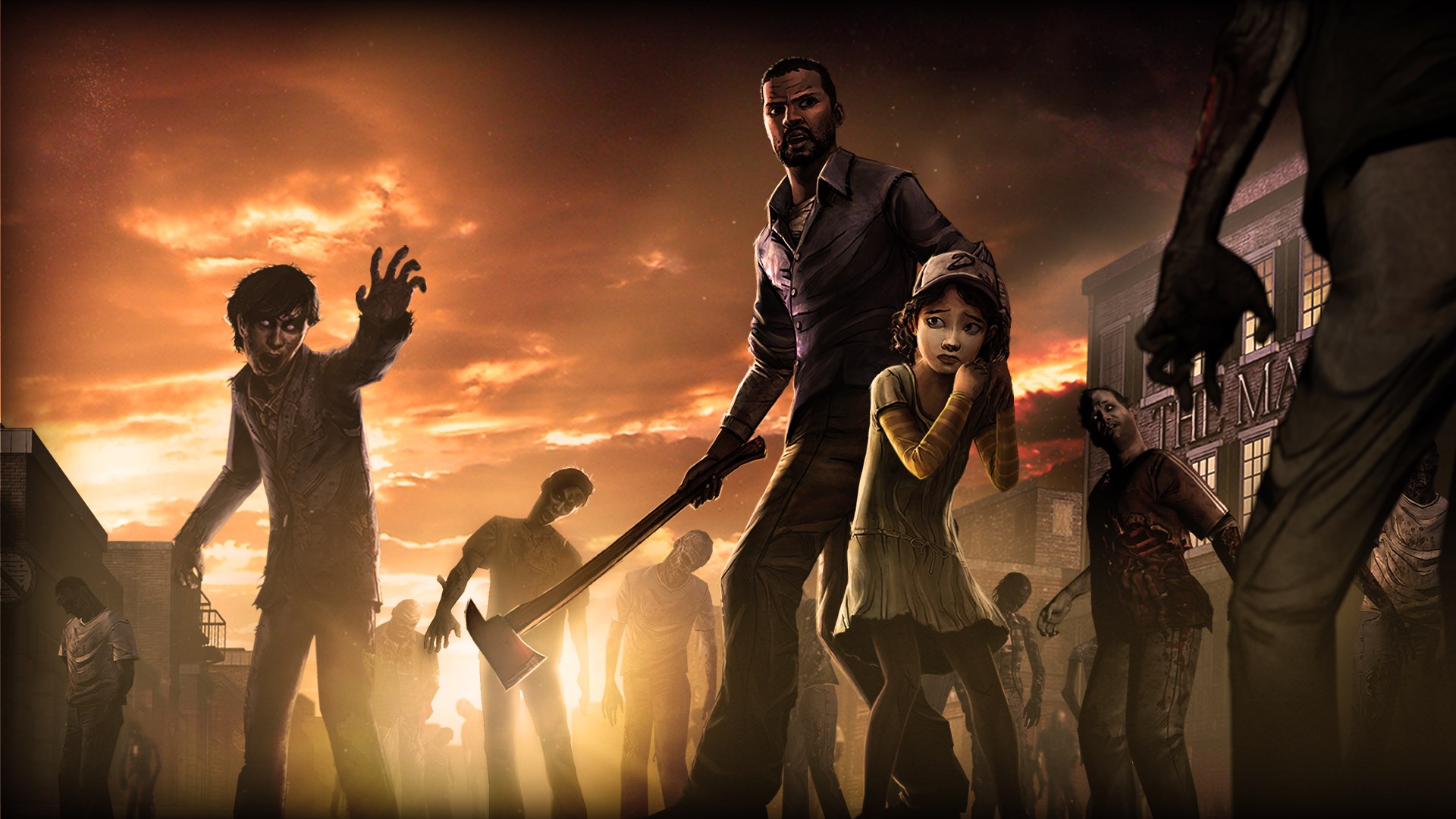
Clementine quickly became a fan favourite within the entirety of Kirkman’s famous franchise, a character that would very literally grow up before our very eyes from innocent eight year old to hardened adolescent and adoptive parent to A.J., a boy born after the world has fallen apart. The collection doesn’t make for quite the tightly woven tale that its distributor might have you believe, each season instead highlighting a specific time in the developer’s history and the evolving priorities of its output.
Much like the protagonist, Telltale’s story itself became a favourite in this multimedia monster of a franchise. Told in five episodes, as would become a staple of Telltale’s business model, the game follows Lee Everett, a man committed to prison for murder and who is en route to imprisonment when the world turns upside down. Lee soon meets Clementine, a girl hiding out in her treehouse from the monsters, and the two make their way across various locales with a number of other characters in search of safety and survival. Memorable mostly for its heartbreaking finale, the game relies on optional dialogue and minor narrative choices to create a tailored experience for individual players. Though the games often faced ridicule for the lack of real influence these choices had, there is still the impression that there are consequences to come from them.

The second season was one of two games Telltale scheduled for 2014, the other being a DC Comics story based on the popular Fables comic book being published at DC’s Vertigo imprint. Clementine, two years on, becomes the playable character and we’re thrust in with a new group of survivors with questionable motives who become absurdly reliant on this child to do much of the work for them.
Season Two lacks the forward momentum of its predecessor; where the first season is a more proactive journey in which the characters pursue minor goals within an overarching desire for basic survival, the characters in the sequel are reactive to basically all conflicts for the entirety of the season. It never reaches the heights of the debut season but it bears a melancholic, desolate tone that makes for a thoughtful, introspective journey into the hearts and souls of damaged people. Following the success of Season Two and The Wolf Among Us, Telltale wanted to take on the world.
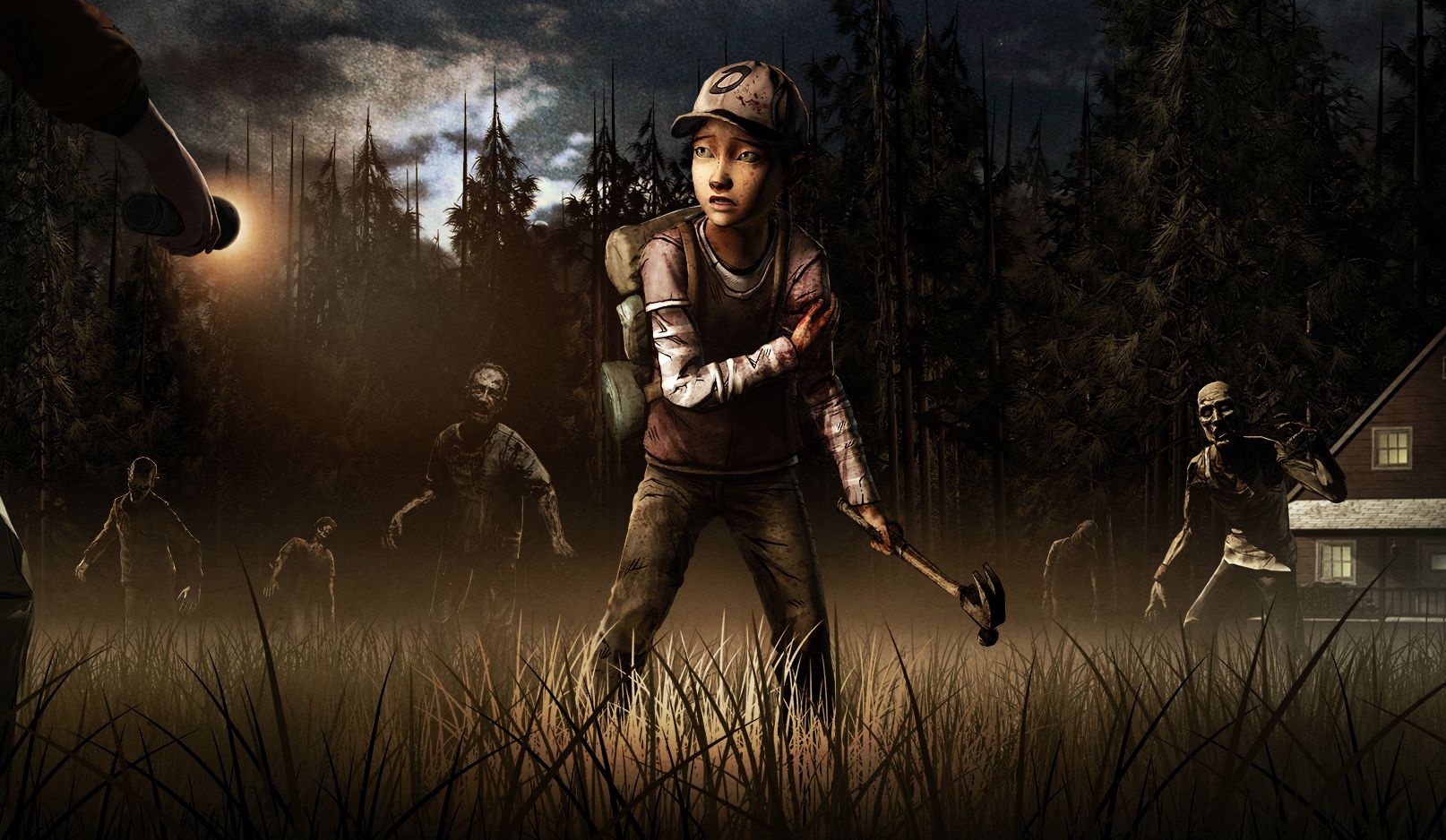
Its release slate became, for any cynical fan, a question of quality versus quantity and the resulting wave of new game announcements and sporadic episode releases came with mixed results. For every game as memorable as 2014’s Tales from the Borderlands, there are one or two lacklustre ones; the six-episode Game of Thrones series from the same year stands as something of a missed opportunity, with a crater-sized cliffhanger and no payoff, while the two seasons of Minecraft: Story Mode that debuted in 2015 are fun but forgettable.
2016’s The Walking Dead: A New Frontier is considered to have completely derailed the franchise and marked a low-point for Telltale Games. It came out about a year after the three-episode, mildly entertaining Michonne mini-series, also collected here. A New Frontier was an attempt at a soft reboot of sorts that would draw new and old players alike to the franchise. For that reason, Clementine takes a secondary role and the focus shifts to Javier Garcier and his family. Javier isn’t a bad protagonist, but the plot often feels weightless and rushed and the use of Clementine as a playable character in flashbacks designed to connect this season to the previous one makes it all feel very unfocused. In an attempt to appeal to everyone, the game struggles to find favour with anyone.

Telltale found something of a new lease on life after this though, leading up to its fourth and final season of The Walking Dead. It saw reasonable critical success with games based on the Batman and Guardians of the Galaxy franchises, both featuring promising attempts at telling rewarding stories with genuine consequences and unique interpretations of iconic characters. The problem was, neither seems to have been the commercial success Telltale had needed. And so two episodes into the four-episode The Walking Dead: The Final Season, the company experienced a sudden closure when its last major investor dropped its funding. Much came to light in the aftermath of the studio’s closure regarding its poor business model and management of staff, but I digress.
The Final Season was resurrected by Kirkman’s Skybound Entertainment, and the “Still Not Bitten” team was assembled to see the final two episodes of the series finished off. Thanks to this miracle of sorts, Clementine’s story comes to a close and the quality of her final season alludes to where Telltale might have been heading had it survived. The Telltale Tool, the oft-ridiculed, outdated game engine, had been overhauled and the graphical and explorational aspects of the game is a stark and welcome step forward from prior releases. Opening the same way as the first season – with our main character involved in a sickening car collision – the parallels continue and The Final Season is as much an exercise in fan servicing as it is an emotional farewell, one last hurrah to conclude a six year long story.
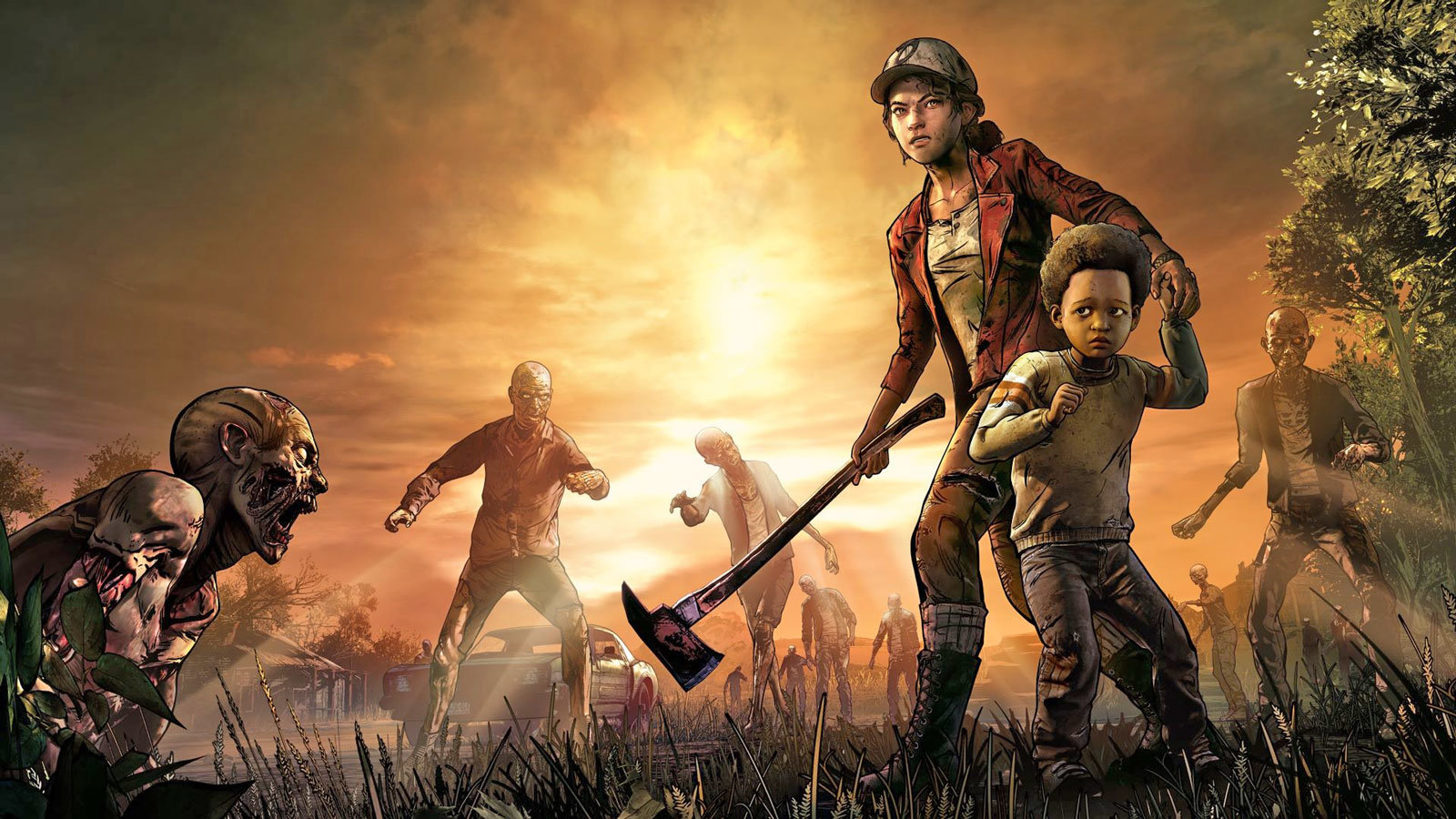
The Definitive Edition is not a perfect release, but the games have never looked better. The previous three seasons and Michonne are given a new coat of paint to more closely resemble The Final Season, and the extras that come on the disc and as downloadable content include a huge selection of music composed by Jared Emerson-Johnson, character models, a documentary on the making of the final season and its resurrection, and commentary tracks on select episodes. There are technical issues to be found, particularly on Season Two, a less enticing technical trend found across all of Telltale’s games and something that was often criticised as having been ignored for the sake of its growing output in its later years. If its definitive edition can’t smooth out these problems, it’s unlikely we’ll ever get a perfect release.
Not every game here is a worthwhile investment of time. The third season and the Michonne mini-series are forgettable, and the second, though with plenty to like, is not without its flaws. And yet The Final Season offers a fitting conclusion and an evolution in the design of these games that, while proven too little too late, is indicative of the growth of the style and aptly, of Clementine herself. The original game meanwhile, remains one of the highlights of the past decade in narrative video game storytelling.
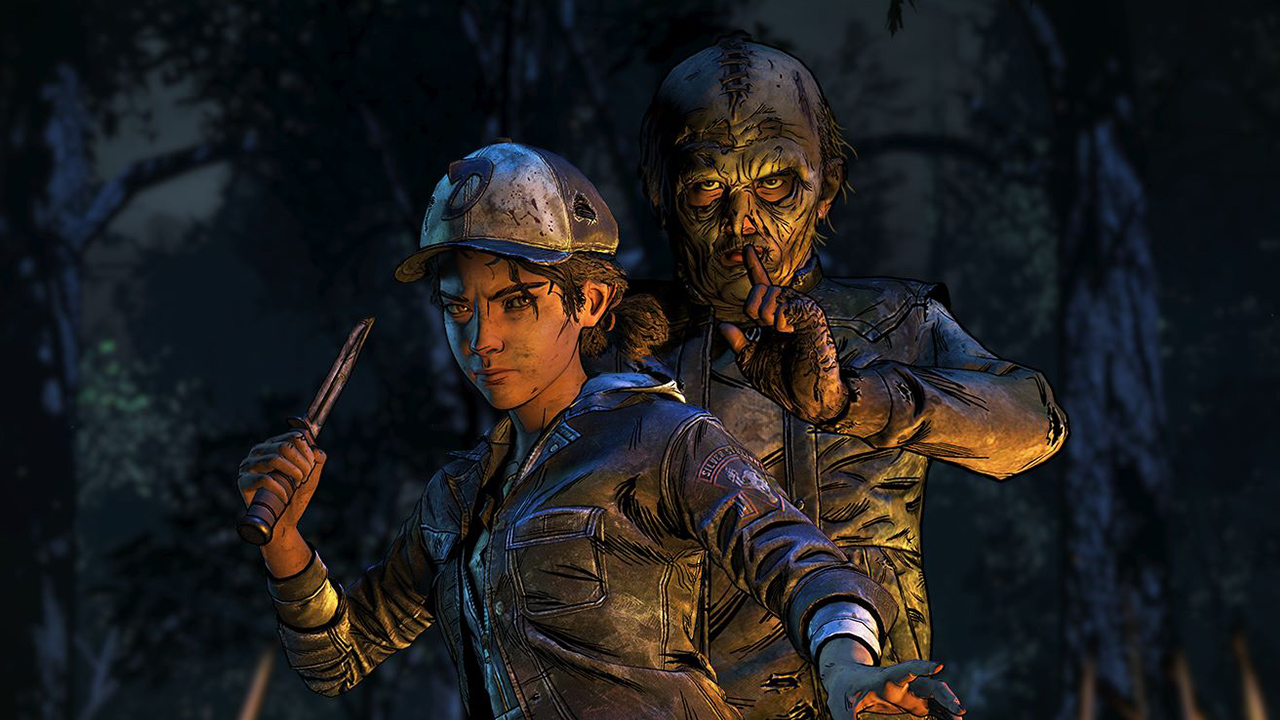
Light on gameplay, absent of difficulty, but heavy on story and character investment, these games have never appealed to everybody. Yet the collection itself is a time capsule, a playable history of the beginning and the end of Telltale Games as many knew it. Its impact cannot be understated in the reemergence of a gaming genre that has had renewed relevance ever since Lee and Clementine first crossed paths in the zombie-infested landscape of Suburban Georgia.
Film ’89 Verdict – 7/10


